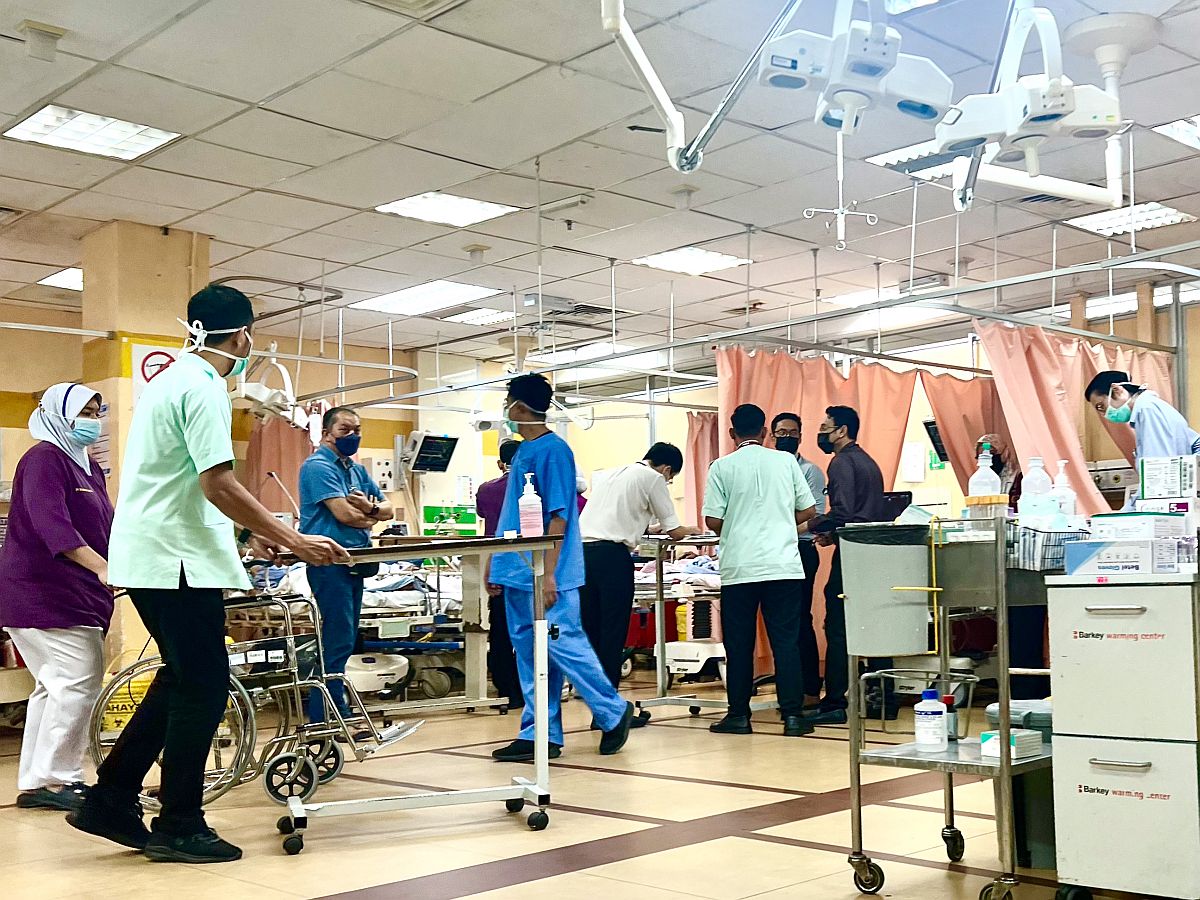In recent times, health care workers in Malaysia have found themselves subjected to increasingly arduous working conditions.
This crisis came to the forefront when a doctor in a certain public hospital was compelled to work back-to-back on-call shifts and, upon voicing concerns online, was forced by superiors to remove the post under a gag order.
Such actions not only suppress the voices of those on the front lines, but also raise significant questions about the alignment of these practices with labour laws and basic human rights.
The Toll Of Prolonged Working Hours
The issue of excessively long working hours for medical officers is not new, but it remains persistently problematic. The on-call schedule provided shows a disturbing pattern of overwork and inadequate rest.
For instance, there are instances where doctors are scheduled for continuous on-call duties without sufficient recovery time. Such a schedule is both physically and mentally exhausting and can have detrimental effects on the wellbeing of the health care workers and the quality of care they provide.
Looking at this timetable, Dr Addeen does not even have one proper full weekend off for the entire month. Yes, we chose to be doctors. We don’t mind sacrificing a little extra, just for our patients.
But please understand that we are also humans that need rest, that need to spend time with family and also need job and financial security.
What Happened One Day Later?
The post was removed due to? #GAGORDER.
Labour Law And Medical Ethics
Malaysian labour laws, like those in many countries, are designed to protect workers from exploitation and ensure fair working conditions.
According to the Employment Act 1955, the maximum number of working hours should not exceed 48 hours per week, and workers are entitled to at least one rest day each week.
However, the reality for many medical officers is starkly different. The on-call shifts, which often extend beyond 30 hours continuously, blatantly violate these stipulations.
This disregard for labour laws not only undermines the health and safety of the medical staff but also raises ethical concerns about the quality of patient care.
The Impact On Health Care Workers
Long and continuous working hours can lead to severe physical and mental health issues among health care workers. Fatigue, burnout, and stress are common consequences, which can compromise the immune system, leading to increased susceptibility to illnesses.
Furthermore, chronic sleep deprivation has been linked to a host of problems, including cognitive impairments, mood disorders, and decreased overall performance.
In the high-stakes environment of health care, such impairments can be catastrophic, potentially leading to medical errors and compromising patient safety.
Advocating For Adequate Rest And Post-Call Off Days
To mitigate these risks, it is crucial to implement policies that ensure adequate rest for medical officers. Post-call off days should be mandatory to allow doctors to recover from the strenuous demands of on-call duties.
Adequate rest not only restores physical and mental health but also improves job satisfaction and performance, ultimately leading to better patient outcomes.
Research has consistently shown that well-rested health care professionals are more efficient, make fewer mistakes, and provide higher quality care.
The Role Of Institutions And Policymakers
Health care institutions and policymakers have a moral and legal obligation to protect the rights and wellbeing of their staff. This includes enforcing labour laws that limit working hours and ensuring that medical officers have access to adequate rest periods.
Moreover, there should be channels for health care workers to voice their concerns without fear of retribution.
Suppressing their voices not only violates their rights but also perpetuates a culture of silence that can have devastating consequences for the entire health care system.
Conclusion
The issue of prolonged working hours for medical officers in Malaysia is a serious concern that requires immediate attention.
The suppression of their voices through gag orders only exacerbates the problem, preventing necessary reforms that can protect their health and improve patient care.
It is imperative that health care institutions and policymakers recognize the urgent need for change and take decisive action to align working conditions with labour laws and ethical standards.
Ensuring adequate rest and post-call off days for medical officers is not just a matter of legal compliance; it is a fundamental aspect of maintaining a functional, safe, and humane health care system.
In summary, the situation depicted in the provided on-call schedule is a clear violation of labour laws and human rights. It is a call to action for all stakeholders to advocate for better working conditions, respect the voices of health care workers, and ensure that the medical profession remains sustainable and humane.
By addressing these issues, we can create a healthier environment for both medical professionals and the patients they serve.
The author is a medical officer at a government hospital in the Klang Valley. CodeBlue is providing the author anonymity because civil servants are prohibited from writing to the press.
- This is the personal opinion of the writer or publication and does not necessarily represent the views of CodeBlue.






